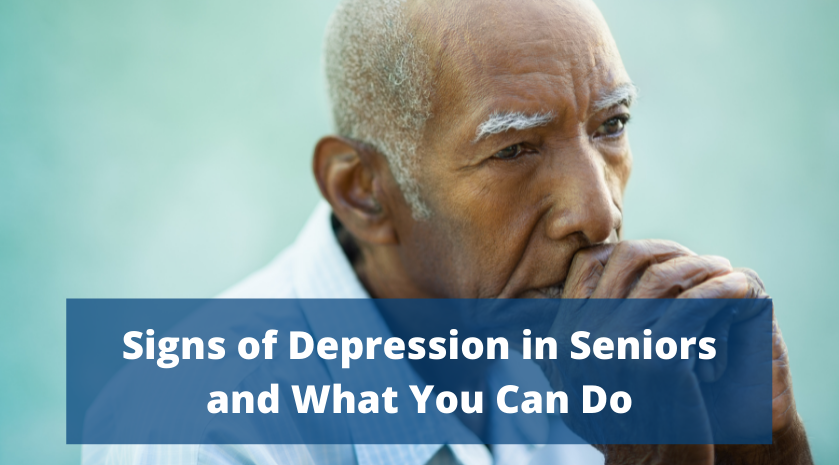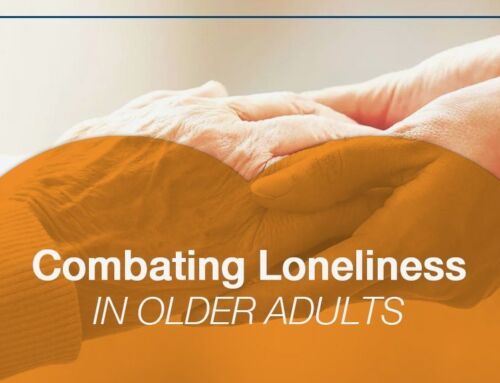Senior Depression and What You Can Do
Sadness in aging should not always be interpreted as depression. Yes, as we grow older, different situations can worsen our mood. But depression is a medical disorder and not a normal part of the aging process. Unfortunately, depression tends to occur more in the elderly compared to younger adults. If you’re advanced in age or need to know how to help an elderly person with depression, the following facts can help you.
Signs of Depression in the Elderly
We can avoid getting fully depressed by knowing its early signs and symptoms. These usually include:
-
- Difficulty falling asleep
- Low energy and motivation
- Helplessness and hopelessness
- Loss of appetite and weight
- Lack of interest in hobbies
- Low interest in social activities
- Pains and aches that have no obvious cause
- Sadness and despondence
- Feelings of worthlessness
- Sluggish speech and body movement
- Strong tendency toward substance abuse
- Thoughts of suicide
- Loss of memory
Causes of Depression in Older Adults
As we advance in age, we often encounter more life-changing events that can increase the occurrence of depression, including:
- Illness — Health problems, physical disability, chronic pain or loss of memory
- Isolation — Living in solitude, a loss of close friends due to death or reduced mobility from losing a driver’s license
- Feelings of Purposelessness — Low desire to pursue personal goals and loss of identity induced by retirement from active service or less access to important activities
- Fear of death — Fear of dying or serious worries about impending doom and financial or health problems
- Recent bereavements — The loss of a spouse, family members, friends or even pets
Types of Depression

- Minor Depression — Mild symptoms of depression show up, but they don’t last for a long time.
- Major Depression — Symptoms are quite severe, and they don’t allow you or your loved one to work, sleep, eat, concentrate or participate in basic daily activities.
- Dysthymia — This depression is known as Persistent Depressive Disorder. The symptoms aren’t as severe as those of major depression, but they could last for as long as two years.
- Subsyndromal Depression — The symptoms don’t meet the criteria for major depression regarding duration or severity. Symptoms such as anhedonia and depressed mood are usually absent.
Medical Conditions That Cause Depression
Any severe medical condition, especially those that are painful or life-threatening, may aggravate the symptoms of depression. Some medical conditions that worsen depression include:
- Multiple sclerosis (MS)
- Lupus
- Alzheimer’s disease
- Dementia
- Lack of vitamin B12
- Diabetes
- Cancer
- Heart disease
- Parkinson’s disease
- Stroke
Depression as a Side Effect of Medications
Depression may occur in the elderly from an adverse reaction to medication. You may be at risk when you take more than one set of medications. Depression could be a side effect of the following drugs:
- Estrogens like Prempro and Premarin
- Painkillers
- Arthritis medication
- Steroids
- Ulcer medication like Tagamet
- Drugs containing Reserpine used for heart-related ailments
- Pills used to induce sleep
- Parkinson’s disease medication
- Tranquilizers like Halcion and Valium
- Drugs for reducing cholesterol like Zocor and Lipitor
- Blood pressure drugs like Clonidine
Dementia versus Depression in the Elderly
We usually associate memory problems with aging. But memory problems are symptoms of both dementia and depression. It’s important to know the difference between these two conditions.
Dementia often causes these symptoms:
- Mental decline that occurs gradually
- Disorientation and confusion
- Poor short-term memory
- Speaking, writing and movement impairment
- Lack of concern about loss of memory
The following are symptoms of depression:
- Mental decline that occurs quickly
- Consciousness of the date and time
- Poor concentration
- Slow movement and speech (though still normal)
- Great concern about memory loss
It’s vital to get in touch with a physician immediately if loss of memory occurs, regardless of whether it’s caused by depression or dementia.
Diagnosis of Depression in the Elderly
Effective diagnosis of geriatric depression is not always easy. Older adults should visit their regular physician first. If they’re living in a home care facility, caregivers can help them watch out for symptoms of depression and nutrition-related problems in the elderly. A mental health expert can also analyze symptoms using the geriatric depression scale. This scale is a small survey that takes less than 10 minutes, and it reveals whether you or your elderly loved one needs to be treated for depression.
Get in Touch With CareGivers of America Today
At CareGivers of America, we offer specialized home care for the elderly. Our nurses and caregivers are trained to help you detect early signs of depression while providing special care for those who’ve been diagnosed with depression. For more information, visit our website to learn more about our home care services.




